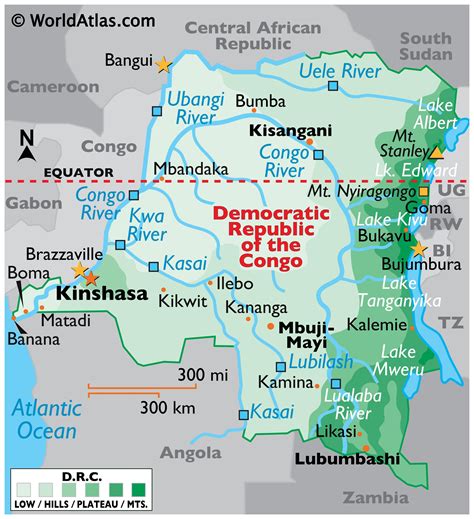Explore Djibouti’s rich history from early settlements to modern times, including Egyptian, Roman, Arab influences, French colonial rule, and independence.
Early Settlements in Djibouti
Contents
Early settlements in Djibouti date back to the prehistoric times, with evidence of human presence dating back to as early as 2000 BC. The region has been inhabited by various ancient cultures and civilizations, including the ancient Egyptians, Romans, and early Islamic societies. The strategic location of Djibouti at the crossroads of the Red Sea and the Indian Ocean made it an important hub for trade and commerce, attracting settlers from across the region.
The ancient port city of Adulis was a major center of trade and commerce, serving as a gateway for goods flowing between the Mediterranean, the Arabian Peninsula, and the African interior. The city was home to a diverse population of merchants, sailors, and craftsmen, making it a melting pot of cultures and traditions. The ruins of Adulis continue to be an important archaeological site, shedding light on the early history of Djibouti and its role in the ancient world.
The ancient Afar people were among the earliest inhabitants of Djibouti, establishing settlements along the coast and in the interior regions. These early settlements were characterized by their nomadic lifestyle, with the Afar people relying on herding, fishing, and trade for their livelihood. The rich cultural heritage of the Afar people continues to be an integral part of Djibouti’s identity, with their language, traditions, and customs shaping the country’s social fabric.
The early settlements in Djibouti laid the foundation for the rich and diverse history of the country, shaping its cultural, linguistic, and economic landscape. The legacy of these ancient civilizations continues to be an important part of Djibouti’s heritage, with the ruins, artifacts, and traditions of the past serving as a link to the country’s early history and the interconnectedness of ancient societies.
Influence of Egyptian and Roman Empires
The influence of Egyptian and Roman empires on the history of Djibouti can be traced back to ancient times. The ancient Egyptians and Romans were known for their extensive trade networks and military conquests, which brought them into contact with the Horn of Africa, including present-day Djibouti. These interactions played a significant role in shaping the cultural and economic landscape of the region.
During this period, the Egyptian and Roman empires established trade routes that extended into the Horn of Africa, leading to an exchange of goods, ideas, and technologies. This cultural exchange had a lasting impact on the development of Djibouti, influencing everything from language and religion to architecture and cuisine.
Furthermore, the military presence of the Egyptian and Roman empires in the region contributed to the political dynamics of Djibouti, as local rulers sought to align themselves with these powerful empires for protection and support. The strategic location of Djibouti along key trade routes made it a coveted territory for ancient empires, further enhancing their influence in the region.
The legacy of Egyptian and Roman influence can still be seen in Djibouti today, with remnants of ancient trade routes, archaeological sites, and cultural traditions that bear witness to this rich historical heritage. The enduring impact of these ancient empires serves as a testament to the enduring legacy of their influence on the history and development of Djibouti.
Arrival of Islam and Arab Influence
The arrival of Islam in Djibouti began in the 7th century, when Muslim traders and missionaries made their way to the region from the Arabian Peninsula. The religion quickly gained a foothold in the area and began to influence the local culture, customs, and traditions. The spread of Islam in Djibouti was facilitated by the intermarriage between Arab settlers and the indigenous population, creating a population that was deeply connected to Islamic practices and beliefs.
One of the most significant ways that Islam influenced Djibouti was through the introduction of the Arabic language. As the language of the Quran, Arabic became a central part of religious and cultural life in the region. It was also through this influence that the Arabic script was adopted for writing Somali and Afar languages in Djibouti.
The Arab influence in Djibouti extended beyond religion and language, shaping the political and social structures of the region as well. The traditional clan-based system of governance was influenced by Islamic principles, and Islamic law, or Sharia, became an integral part of the legal system in Djibouti.
Furthermore, the Arab influence in Djibouti has left its mark on the architecture, cuisine, and daily life of the people. Arab-style buildings and mosques can be found throughout the country, and traditional Arab dishes and culinary practices have become part of the local food culture.
In conclusion, the arrival of Islam and Arab influence has had a profound and lasting impact on the history and development of Djibouti, shaping its identity and character in significant ways.
Djibouti under French Colonial Rule
During the 19th century, Djibouti became a strategic location for European powers seeking to expand their influence in the Horn of Africa. In the late 1800s, the French established control over the region and Djibouti became a key port for their empire. The French colonial rule saw significant development in infrastructure, including the construction of the Djibouti-Addis Ababa railway, which facilitated trade and transportation in the region.
Under French rule, Djibouti experienced significant social and economic changes. The colonial administration imposed its authority over the local population, leading to resistance and unrest. The divide between the ruling colonial elite and the local Djiboutian population became increasingly evident. Economic disparities and social inequality deepened, leading to growing discontent among the Djiboutian people.
The French also established military bases in Djibouti, using the territory as a strategic outpost in the region. The presence of the French military further cemented their control over the territory and contributed to the political and social dynamics of Djibouti. The colonial rule also had a lasting impact on the cultural and linguistic landscape of Djibouti, with the French language and customs becoming ingrained in the society.
Despite the development brought about by the French colonial rule, Djibouti’s population increasingly sought independence and self-governance. The push for independence gained momentum in the mid-20th century, culminating in Djibouti’s eventual independence from France in 1977.
Independence and Modern History
Djibouti gained its independence from France on June 27, 1977, after years of colonization. The country, formerly known as French Somaliland, experienced various changes and challenges in the years following its independence. The first president of Djibouti, Hassan Gouled Aptidon, ruled the country under a one-party system for more than two decades. Despite gaining independence, Djibouti faced numerous internal conflicts and political instability, which hindered the country’s progress and development.
The modern history of Djibouti is marked by efforts to establish a stable and democratic government. The introduction of a multi-party political system in the early 1990s was a significant step towards pluralism and political reform. However, the country continues to face economic difficulties and social issues, including high unemployment, poverty, and inadequate access to basic services such as healthcare and education.
In recent years, Djibouti has become increasingly important on the global stage, largely due to its strategic location. The country’s proximity to international shipping routes and its key position near the Red Sea and the Gulf of Aden have made it an important player in regional and global geopolitics. Furthermore, Djibouti has been the site of foreign military bases, including installations operated by the United States, France, China, and Japan.
The government of Djibouti has been focused on promoting economic development and attracting foreign investment. The country has pursued infrastructure projects and initiatives to exploit its natural resources, including its potential as a transshipment hub. However, these efforts have also raised concerns about environmental sustainability and the impact on local communities.













